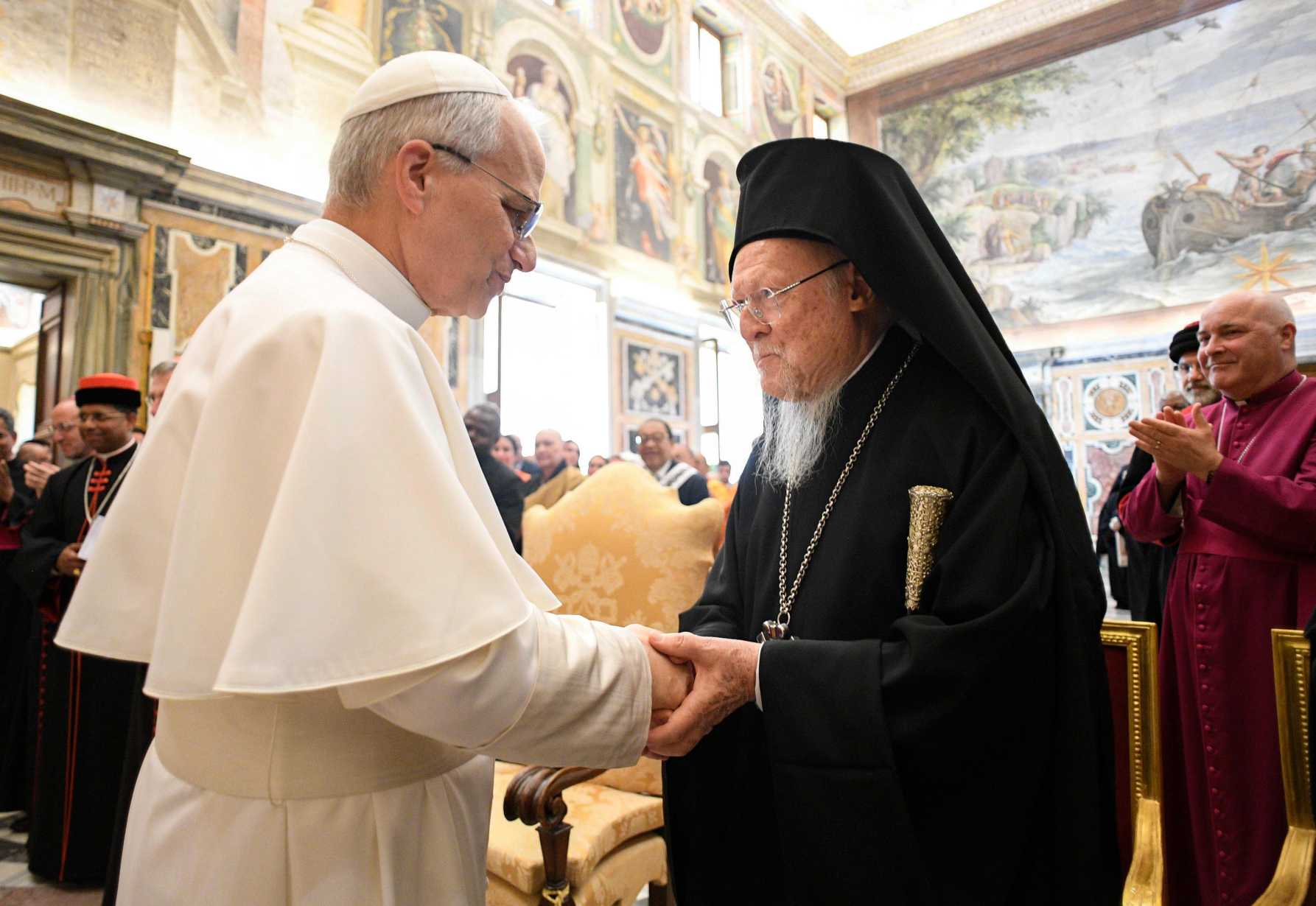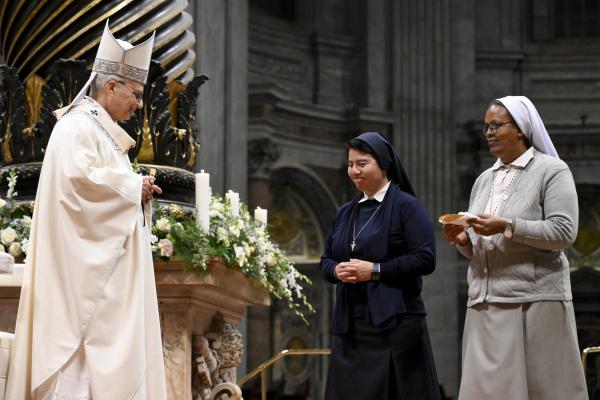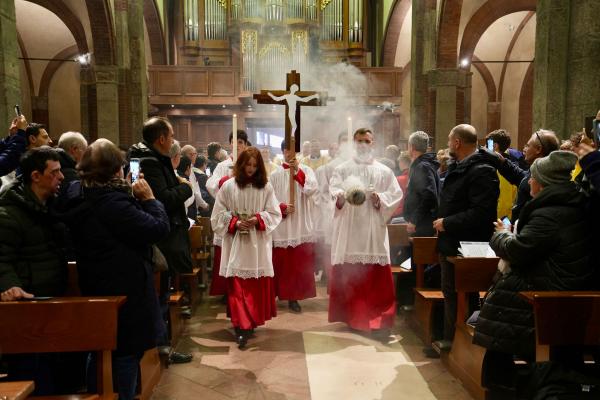Christians are called to help world find peace, reconciliation, pope says
"The followers of Christ are summoned to become artisans of reconciliation: to confront division with courage, indifference with compassion and to bring healing where there has been hurt," Pope Leo XIV said in a message to a major ecumenical celebration in Sweden.
 Cindy Wooden
Cindy Wooden

Pope Leo XIV greets Orthodox Ecumenical Patriarch Bartholomew of Constantinople during a meeting with religious leaders at the Vatican, May 19, 2025. The leaders had come to Rome for the pope's inauguration Mass. (CNS photo/Vatican Media)
VATICAN CITY (CNS) -- Even as Christians continue the dialogue aimed at restoring their unity, they are called to work together to bring peace and reconciliation to a deeply divided world, Pope Leo XIV said.
"We believe that the unity Christ wills for his Church must be visible, and that such unity grows through theological dialogue, common worship where possible and shared witness in the face of humanity's suffering," the pope wrote in a message to church leaders meeting in Stockholm.
Archbishop Flavio Pace, secretary of the Dicastery for Promoting Christian Unity, read the pope's message Aug. 22 during the weeklong celebration of the 100th anniversary of the Universal Christian Conference on Life and Work, when leaders of Protestant and Orthodox churches met in Stockholm to find ways to work together for peace.
"While the Catholic Church was not represented at that first gathering, I can affirm, with humility and joy, that we stand with you today as fellow disciples of Christ, recognizing that what unites us is far greater than what divides us," Pope Leo told the leaders.
"Time for God's peace," the theme chosen for the anniversary celebration, "could not be more timely," the pope said, because "our world bears the deep scars of conflict, inequality, environmental degradation and a growing sense of spiritual disconnection."
However, Christians know that "peace is not merely a human achievement, but a sign of the Lord's presence with us," he wrote. "This is both a promise and a task, for the followers of Christ are summoned to become artisans of reconciliation: to confront division with courage, indifference with compassion and to bring healing where there has been hurt."
The Catholic Church did not fully commit to the ecumenical movement until the Second Vatican Council in the 1960s, the pope noted. But since then, it has "wholeheartedly embraced the ecumenical path."
"Indeed, 'Unitatis Redintegratio,' the Council’s decree on ecumenism, called us to dialogue in humble and loving fraternity, grounded in our common baptism and our shared mission in the world," he said.
Pope Leo also drew a parallel between the 100th anniversary of the Life and Work conference and the 1,700th anniversary of the Council of Nicaea, which met in what is now Turkey and gave global Christianity its first common Creed.
"In the year 325, bishops from across the known world gathered in Nicaea," the pope wrote. "In affirming the divinity of Jesus Christ, they formulated our creedal statements that he is 'true God from true God' and 'consubstantial -- homoousios -- with the Father.' Thus, they articulated the faith that continues to bind Christians together."
The Council of Nicaea, he said, "stood as a courageous sign of unity amidst difference -- an early witness to the conviction that our shared confession can overcome division and foster communion."



